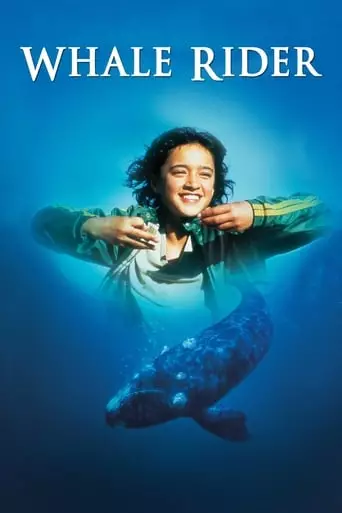
On the east coast of New Zealand, the Whangara people believe their presence there dates back a thousand years or more to a single ancestor, Paikea, who escaped death when his canoe capsized by riding to shore on the back of a whale. From then on, Whangara chiefs, always the first-born, always male, have been considered Paikea’s direct descendants. Pai, an 11-year-old girl in a patriarchal New Zealand tribe, believes she is destined to be the new chief. But her grandfather Koro is bound by tradition to pick a male leader. Pai loves Koro more than anyone in the world, but she must fight him and a thousand years of tradition to fulfill her destiny.
Whale Rider is a 2003 New Zealand drama directed by Niki Caro, adapted from Witi Ihimaera’s novel. The film centers on Paikea Pai Apirana (Keisha Castle-Hughes), a young Māori girl from the village of Whangara. Pai’s grandfather, Koro (Rawiri Paratene), is the tribal chief who believes leadership should pass to a male heir, following the ancient legend of Paikea, the Whale Rider. After the tragic death of her twin brother and mother during childbirth, Pai is raised by her grandparents. Despite Koro’s traditional views, Pai is determined to prove herself as the rightful leader, challenging gender roles and cultural expectations.
The narrative intertwines Māori mythology with contemporary issues, highlighting themes of identity, tradition, and empowerment. Pai’s journey is marked by her resilience and unwavering belief in her destiny, even when faced with familial and societal opposition. The film’s cinematography captures the beauty of the New Zealand landscape, serving as a backdrop to the emotional and cultural struggles of the characters.
Whale Rider received critical acclaim for its storytelling and performances, particularly that of Keisha Castle-Hughes, who was nominated for an Academy Award for Best Actress. The film brought international attention to Māori culture and issues of gender equality, sparking discussions about the representation of indigenous peoples in cinema. Its success demonstrated the global appeal of stories rooted in specific cultural contexts.
After watching Whale Rider, you will likely feel a profound sense of admiration for Pai’s courage and determination. Her unwavering commitment to her heritage and her quest for recognition as a leader are both inspiring and moving.
The film’s exploration of generational conflict may evoke empathy for the complexities of family relationships, particularly the challenges of reconciling traditional values with modern perspectives.
You may also experience a deep appreciation for the rich cultural tapestry of the Māori people, gaining insight into their traditions, struggles, and resilience.
The stunning cinematography and evocative storytelling are likely to leave a lasting impression, prompting reflection on the themes of identity, empowerment, and the importance of understanding and honoring one’s heritage.
In the end, Whale Rider offers a poignant and uplifting cinematic experience that celebrates the strength of the human spirit and the enduring power of cultural identity.
